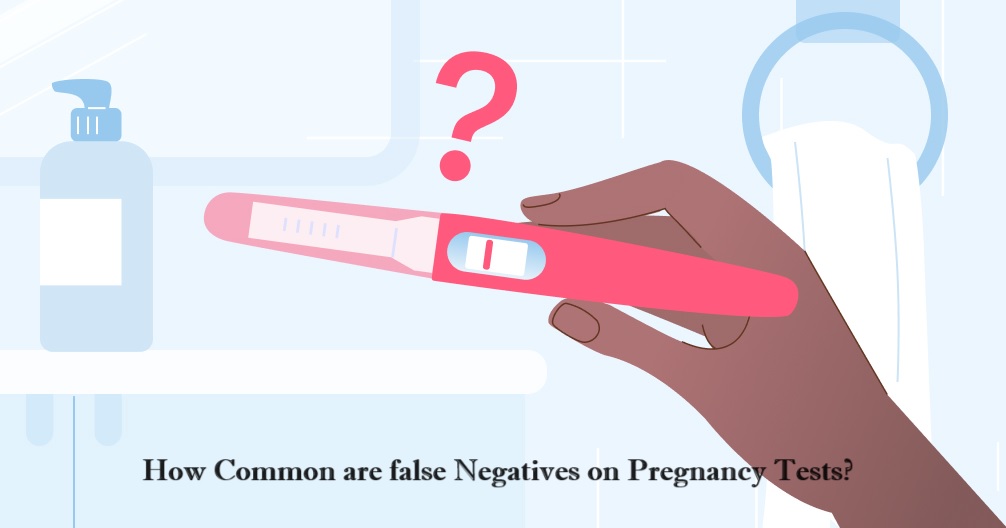Although relatively uncommon, false negatives on pregnancy tests can arise due to various factors. The accuracy of a pregnancy test hinges on the test type, the timing of the test, and the individual’s unique situation. Here, we’ll delve into the factors contributing to false negatives in pregnancy tests and guide on reducing the likelihood of such results.
Factors of false negatives in Pregnancy Tests
Inadequate test execution is a common reason for false negatives. Users must carefully follow the instructions provided with the test kit. This includes using the first urine of the day, as it is generally the most concentrated and likely to contain detectable levels of hCG. Diluting the urine by drinking large amounts of water before testing can lead to false negatives. Failing to wait for the recommended time to read the results or misinterpreting the results can also contribute to inaccurate outcomes.
How Common Are False Negatives on Pregnancy Tests?
To reduce the chances of false negatives, it’s essential to choose a reputable pregnancy test, follow the instructions precisely, and test after a missed period for the most accurate results.
In conclusion, while false negatives on pregnancy tests are relatively rare, they can occur due to timing, test sensitivity, health conditions, medications, user error, and chemical pregnancies.
What are the different types of pregnancy tests?
Several types of pregnancy tests are available, each with its benefits and limitations. Here are the most common types:-
1. Urine Home Pregnancy Tests
- Midstream Tests:- These are the most common home pregnancy tests. They come in a stick or wand-like form, and you hold them directly in your urine stream or dip them into a urine sample. They are available in various brands and sensitivity levels.
- Strip Tests:- These are similar to midstream tests but come in thin strips. They are often more affordable and are dipped into a urine sample to check for hCG.
2. Digital Pregnancy Tests
These tests ensure a clear digital readout of “Pregnant” or “Not Pregnant” instead of relying on interpreting lines or symbols. They are user-friendly and eliminate the possibility of misinterpretation.
3. Blood Pregnancy Tests
- Qualitative hCG Blood Test:- This test checks whether hCG is present, similar to a urine pregnancy test. It can provide a more accurate result earlier in pregnancy than urine tests.
- Quantitative hCG Blood Test (Beta hCG):- This blood test measures the exact amount of hCG in the blood, which can aid in monitoring the progression of the pregnancy and identify potential issues.
How do you find a reliable professional for pregnancy Confirmation?
Here are the steps to find a reliable professional for pregnancy confirmation:-
1. Selecting a Healthcare Provider
Your first elemental step in confirming pregnancy is choosing a healthcare provider specializing in pregnancy-related matters. Primary care physicians, gynecologists, obstetricians, family planning clinics, and women’s health centers can be included. Ensuring your selected provider possesses the essential expertise in this field is pivotal. For more information about available healthcare options, consider researching further about Ava Health.
2. Make an Appointment
Contact the chosen healthcare provider’s office to schedule an appointment. Explain that you need a pregnancy confirmation, and they will typically lead you through the process, comprising appointment availability and any necessary preparations.
3. Consult Your Insurance
If you have health insurance, checking if your chosen healthcare provider is in-network is a good idea. This can aid in reducing your out-of-pocket expenses. You can also inquire about the costs associated with the pregnancy confirmation process.
